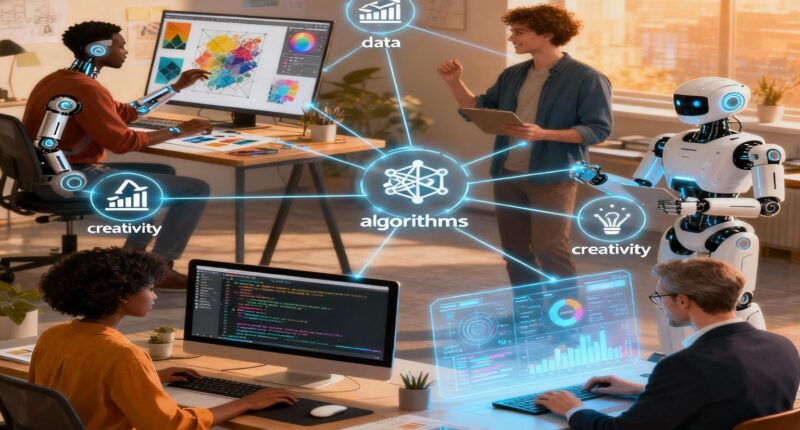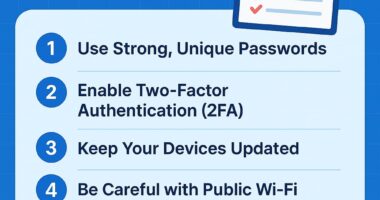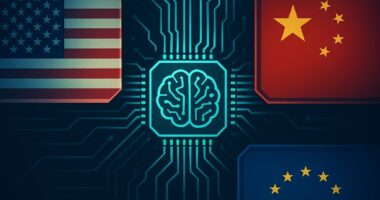Table of Contents
- Introduction to AI in the Workplace
- The Changing Landscape of Jobs
- AI’s Impact on Job Roles
- Skills in Demand for the AI Era
- The Evolution of Recruitment Processes
- Strategies for Business Leaders
- Navigating Career Changes as a Job Seeker
- Staying Ahead in the Age of AI
- Conclusion: Embracing the AI Revolution
Introduction to AI in the Workplace
Artificial Intelligence (AI) has become synonymous with innovation, efficiency, and, increasingly, concern regarding job displacement. As more companies in the tech sector adopt AI technologies, it’s imperative to understand how this transformative technology reshapes job roles, workplace dynamics, and the very nature of work itself. By embracing the AI factor, organizations can not only retain competitive advantages but also prepare employees for the future.
The Changing Landscape of Jobs
In recent years, the job market has undergone significant transformations driven by technological advancements. AI technologies, such as machine learning, natural language processing, and robotics, are altering how businesses operate. Many traditional job roles are evolving, while entirely new positions are being created. This shift is evident across various sectors, from finance to healthcare, where routine tasks are automated, allowing employees to focus on more strategic initiatives.
The emergence of remote work in response to the global pandemic has also accelerated changes in job structures. With AI tools facilitating virtual collaboration, remote and hybrid roles are now commonplace, enabling a more versatile workforce. This flexibility leads to a broadening of the talent pool, encouraging diverse skill sets to flourish in unprecedented ways.
AI’s Impact on Job Roles
Traditionally, many job roles involved repetitive tasks that required minimal critical thinking. AI is streamlining these functions, transforming the expectations of employees. For instance:
- Data Analysis and Reporting: Previously, analysts spent hours sifting through data sets. AI now automates data collection, analysis, and reporting, allowing analysts to focus on interpretation and strategy rather than data compilation.
- Customer Service: Chatbots and virtual assistants have taken over first-level customer interactions, providing instant support. This not only improves customer satisfaction but also allows human representatives to handle more complex customer inquiries.
- Recruitment: AI tools can rapidly screen resumes, helping recruiters identify suitable candidates faster and with greater precision.
The rise of AI means that organizations must start redefining roles to incorporate these new technologies. Employees whose tasks involve supervision of AI systems, strategic decision-making, and interpersonal engagement will be in high demand.
Skills in Demand for the AI Era
As the job landscape shifts with AI’s ascent, the skills required for success are also evolving. Business leaders and job seekers alike must focus on developing the following competencies:
- Technical Proficiency: Understanding AI and machine learning basics will become essential. For tech professionals, familiarity with programming languages (Python, R) and AI frameworks (TensorFlow, PyTorch) is crucial.
- Analytical Skills: As data becomes a driving force in decision-making, the ability to interpret data effectively will set candidates apart. Employers seek professionals who can leverage data analytics and derive actionable insights.
- Soft Skills: AI can perform many tasks, but human connection remains invaluable. Skills such as emotional intelligence, communication, and adaptability will enhance workplace collaboration and leadership effectiveness.
- Continuous Learning: The tech landscape is ever-changing. Cultivating a mindset geared towards lifelong learning will allow you to stay relevant and competitive in an AI-dominated work environment.
Investing in training and upskilling to harness these abilities will further align your career trajectory with the demands of the future workforce.
The Evolution of Recruitment Processes
AI is not only reshaping job roles but also revolutionizing how companies recruit talent. Here are several ways AI optimizes recruitment processes:
- Resume Parsing: AI algorithms can analyze resumes with remarkable speed and precision, filtering out candidates who do not meet specific criteria. This decreases time invested in preliminary screenings.
- Enhanced Candidate Experience: Through chatbots, candidates can receive immediate responses to inquiries, creating a seamless experience. This transparency improves an organization’s reputation for efficient hiring.
- Bias Reduction: AI can help eliminate bias by focusing purely on qualifications rather than an applicant’s demographic background. While not without its challenges, AI can arguably create more equitable hiring processes.
- Data-Driven Insights: Recruitment analytics allow organizations to measure hiring effectiveness, workforce diversity, and employee retention rates, enabling continuous improvement in recruitment strategies.
By integrating AI into the recruitment framework, businesses position themselves to attract top talent while remaining competitive in a fast-paced environment.
Strategies for Business Leaders
To successfully navigate the AI revolution, business leaders must embrace strategies that prioritize innovation and employee development:
- Promote a Culture of Continuous Learning: Encourage employees to participate in training programs, workshops, and conferences focused on AI and machine learning. Establishing partnerships with educational institutions can facilitate access to cutting-edge skills.
- Invest in Technology Infrastructure: Companies need to invest in the right technologies that enable AI integration into their operations. This includes adopting platforms that support effective data management and analytics, as well as user-friendly AI applications.
- Encourage Collaborative Workflows: Foster environments where employees can work alongside AI tools instead of fearing them. By positioning AI as an assistive technology, you can increase productivity and enhance employee morale.
- Measure AI Impact: Track the performance of AI initiatives and their impact on business outcomes. By evaluating how AI tools are shaping the work environment, you can make informed decisions regarding future investments.
By adopting these strategies, leaders can pave the way for sustainable growth and effectively harness the potential of AI in their organizations.
Navigating Career Changes as a Job Seeker
For job seekers, the rapid pace of AI-driven changes can be daunting. Here are strategies to ensure a smooth transition into the evolving job market:
- Stay Informed: Keep up with industry trends and technologies. Understanding how AI is shaping your field can provide you with a competitive advantage during interviews and negotiations.
- Network Actively: Engage with professionals in your industry via events, online platforms, and social media. Networking can open doors to opportunities that may not be listed on job boards.
- Tailor Your Resume: When applying for positions, highlight your AI-related skills and experience. Specificity goes a long way—use keywords relevant to the job description to increase your chances of getting noticed by AI-driven applicant tracking systems.
- Be Open to Learning: Given the dynamism of the tech industry, be receptive to learning new skills that may seem outside your initial expertise. This flexibility will enhance your employability and allow you to adapt to new roles.
By embracing these approaches, you position yourself favorably in a job market heavily influenced by AI and technological advancements.
Staying Ahead in the Age of AI
With AI shaping the future of work, staying ahead requires proactive engagement with ongoing learning and adaptation. Professionals across industries can leverage AI to boost their productivity, creativity, and efficiencies. Consider these avenues to remain at the forefront of the AI-driven landscape:
- Participate in Online Courses: Platforms like Coursera, Udacity, and LinkedIn Learning offer courses tailored to AI and its applications in various fields. This flexibility allows you to learn at your own pace while acquiring skills applicable to your career.
- Engage in AI Communities: Join forums, discussion groups, and online communities that focus on AI and technological advancements. Being part of such networks allows you to exchange ideas, seek advice, and collaborate on projects.
- Experiment with AI Tools: Familiarize yourself with popular AI applications relevant to your industry. Use trial versions to explore capabilities, and develop your proficiency while discovering how to apply them in your daily tasks.
By integrating these practices into your professional development, you will not only enhance your skills but also position yourself as a thought leader in the field.
Conclusion: Embracing the AI Revolution
The influence of AI on jobs and the workplace is undeniable and profound. As business leaders, job seekers, and tech professionals, it’s essential to understand and embrace these changes. Adaptability, continuous learning, and embracing a tech-first mindset will secure your position in this new era of work. Therefore, rather than resisting the AI revolution, consider how you can leverage it to your advantage and carve out a space for yourself in the future of work.









